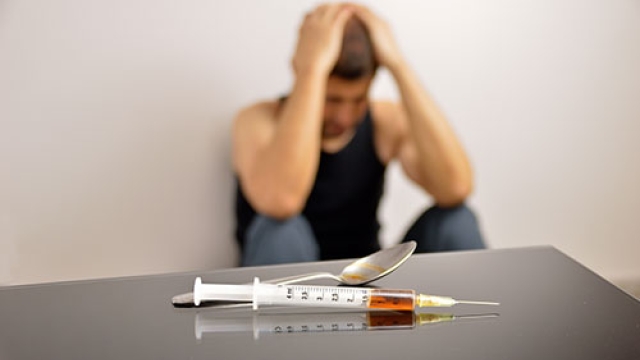
Breaking Free: A Path to Recovery – Exploring Drug Rehabilitation Options
Breaking Free: A Path to Recovery – Exploring Drug Rehabilitation Options
It takes great courage to acknowledge the need for help when it comes to addiction. Whether it’s drugs or alcohol, breaking free from the clutches of addiction is a challenging journey. However, with the right support and guidance, the road to recovery becomes a possibility for anyone willing to take that crucial step.
Drug rehabilitation is an essential part of this process, offering individuals a lifeline towards healing and a chance at reclaiming their lives. This comprehensive guide aims to shed light on the different options available for those seeking drug rehabilitation and also extends its support to individuals on the path to alcohol recovery. By exploring various strategies and treatment methods, we hope to assist individuals and their loved ones in making informed decisions that can ultimately pave the way for a successful and lasting recovery.
Understanding Drug Rehabilitation
Drug rehabilitation is a process that aims to help individuals overcome their addiction to drugs, including substances such as alcohol. It involves various methods and approaches designed to address the physical, psychological, and social aspects of addiction.
One key aspect of drug rehabilitation is detoxification, or detox, which is the process of eliminating the substance from the body. This often involves a carefully managed withdrawal under medical supervision to ensure the safety and well-being of the individual throughout the process.
Another crucial element of drug rehabilitation is therapy and counseling. This involves individual and group sessions where individuals can explore the underlying causes of their addiction, develop coping strategies, and work on rebuilding their lives without relying on drugs or alcohol.
In addition to therapy, drug rehabilitation often incorporates holistic approaches such as exercise, nutrition, and mindfulness practices. These techniques can help individuals develop healthy habits, manage stress, and improve their overall well-being.

By providing a comprehensive and multidisciplinary approach, drug rehabilitation programs aim to guide individuals towards recovery, enabling them to break free from the grip of addiction and lead fulfilling, substance-free lives.
Drug Rehabs In Mumbai
Alcohol Rehabilitation Options
When it comes to alcohol rehabilitation, individuals have several options to consider. Choosing the right approach to address alcohol addiction is crucial for a successful recovery journey. Here are three potential options for alcohol rehabilitation:
Inpatient Rehabilitation: Inpatient rehabilitation, also known as residential treatment, requires individuals to stay at a specialized facility for a designated period. This option provides a structured environment where patients receive 24/7 medical and emotional support. Inpatient rehabilitation programs often incorporate various therapies, counseling sessions, and activities to help individuals overcome alcohol addiction.
Outpatient Rehabilitation: Outpatient rehabilitation allows individuals to receive treatment for their alcohol addiction while continuing to live at home. This flexible option suits those who have commitments they can’t put on hold, such as work or family responsibilities. Outpatient programs involve regular visits to a treatment center, where individuals participate in therapy sessions, counseling, and support group meetings.
Support Groups: Support groups are an essential component of alcohol rehabilitation. They provide individuals with a supportive community of people who understand their struggles and can offer guidance and motivation. Alcoholics Anonymous (AA) is one of the most well-known support groups for alcohol addiction, offering a 12-step program aimed at achieving and maintaining sobriety. Other support groups may also be available locally or online.
Selecting the most appropriate alcohol rehabilitation option depends on individual circumstances, severity of addiction, and personal preferences. It is important to consult with healthcare professionals or addiction specialists to determine the best course of action for a successful recovery from alcohol addiction.
Moving Forward: Overcoming Addiction
In the journey towards recovery, overcoming addiction requires commitment, dedication, and a willingness to change. It is a process that takes time, but with the right support and resources, it is possible to break free from the grip of addiction.
One important step in moving forward is seeking professional help. Drug rehabilitation centers provide a safe and supportive environment for individuals to detoxify and learn new coping mechanisms. These centers offer a comprehensive drug rehabilitation guide that addresses not only the physical aspects of addiction but also the psychological and emotional aspects as well.
Another crucial aspect of overcoming addiction is creating a strong support network. Surrounding yourself with understanding family members, friends, or support groups can help you stay motivated and focused on your recovery journey. They can provide encouragement, accountability, and assistance during challenging times.
Lastly, it is essential to develop healthy coping strategies and lifestyle changes. Engaging in activities that promote physical and mental well-being, such as exercise, meditation, or creative outlets, can help reduce stress and provide healthier alternatives to substance abuse. Moreover, learning effective communication skills and practicing self-care can aid in managing triggers and avoiding relapse.
Remember, overcoming addiction is a personal and unique process. It might not be easy, but with determination and support, you can break free from the chains of addiction and embark on a path to recovery.



